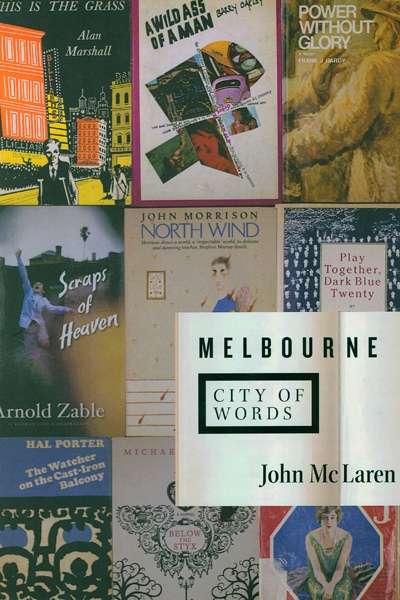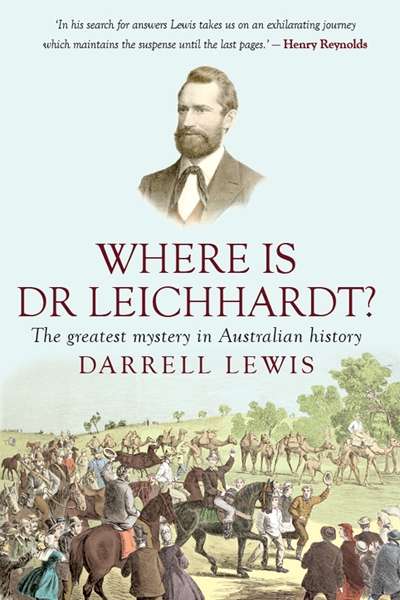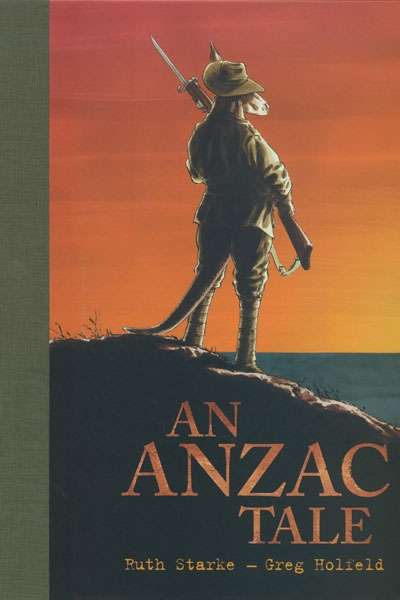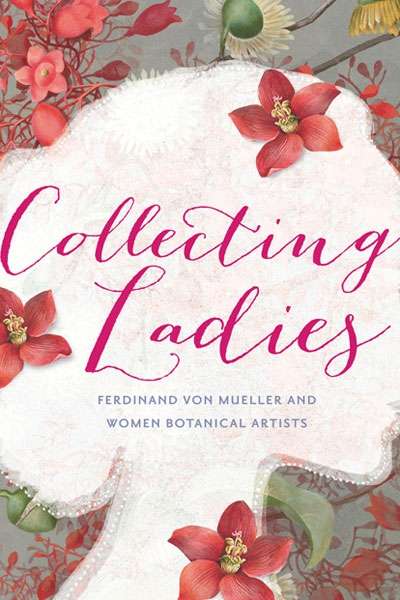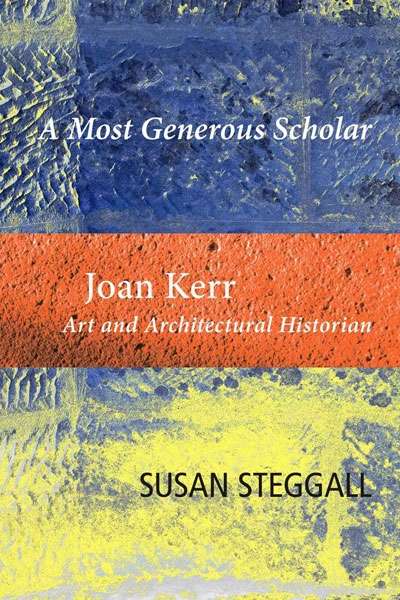Australian History
To judge by John McLaren’s thought-provoking survey of 200 years of writing about Melbourne, the city’s most insidious negative feature for many observers – wrong-headed though they may be – is dullness. In George Johnston’s My Brother Jack (1964), the narrator David Meredith rails against the suburbs as ‘worse than slums. They betrayed nothing of anger or revolt or resentment; they lacked the grim adventure of true poverty; they had no suffering, because they had mortgaged this right to secure a sad acceptance of suburban respectability that ranked them a step or two higher than the true, dangerous slums of Fitzroy or Collingwood.’ In affluent suburbs like Malvern, Graham McInnes in The Road to Gundagai, a memoir first published in 1965, saw ‘immense deserts of brick and terracotta, or wood and galvanised iron [that] induce a sense of overpowering dullness, a stupefying sameness, a worthy, plodding, pedestrian middle-class, low church conformity’.
... (read more)W. Macmahon Ball: Politics for the People by Ai Kobayashi
William Macmahon Ball (1901–86) was many things: an academic, a diplomat, a writer, and what we would now refer to as a ‘public intellectual’. As Ai Kobayashi’s new study of this fascinating man ably demonstrates, Ball was predominantly an educator. In the classroom, through books, and in the media, Ball encouraged his audience to reflect more deeply and actively on Australia’s relations with the outside world. From World War II onwards, Australia’s relationship with Asia was among his chief concerns. During his time as Professor of Political Science at Melbourne University (1949–68), Ball did much to accelerate the development of Asian studies in Australia.
... (read more)Silences and Secrets: The Australian Experience of the Weintraubs Syncopators by Kay Dreyfus
Kay Dreyfus was inspired to write about the Weintraubs Syncopators after seeing a German documentary at the Melbourne Jewish Film Festival in 2000. The film recounted the story of this interwar dance and variety band, which had earned fame in Josef von Sternberg’s The Blue Angel (1930), and later used a European tour to escape from Hitler’s jazz- and Jew-hating régime. After a music-driven adventure across Russia and Asia, the group believed it had found a haven when it reached Australia in 1937, and secured a residency in Sydney’s high-society Prince’s restaurant. Then disaster struck. Accused of espionage, musicians accustomed to celebrity suddenly found themselves interned. Although they were later released, the band never reformed. Dreyfus was intrigued by the Syncopators’ story, but it was the film’s assertion of Australian responsibility for their destruction that piqued her intellectual curiosity.
... (read more)While the Billy Boils by Henry Lawson & Biography of a Book by Paul Eggert
It is not often that a truly ground-breaking work appears, publishers’ hype notwithstanding. Paul Eggert has produced two such works in the one year, which must be a record. Both relate to Henry Lawson (1867–1922), arguably the most famous Australian writer of all time.
... (read more)Where is Dr Leichhardt?: The greatest mystery in Australian history by Darrell Lewis
Among all the myriad characters, brilliant and brutish, fraudulent and fabulous, who lobbed into New South Wales in the mid-nineteenth century, Ludwig Leichhardt, born in rural Prussia 200 years ago, was in a class of his own.
... (read more)The Stalking of Julia Gillard: How the Media and Team Rudd Contrived to Bring down the Prime Minister by Kerry-Anne Walsh
On 7 September 2010, seventeen days after the last federal election, the Australian Labor Party, led by Julia Gillard, just managed to crawl across the electoral line, thanks entirely to the support of independent MPs. In constitutional terms, the ALP had passed the only test needed to form government: a majority on the floor of the House of Representatives. But it soon became abundantly clear that for recently deposed Prime Minister Kevin Rudd, for Tony Abbott’s Opposition, deprived of victory by such a narrow margin, and for Coalition supporters in the media and elsewhere, this fact would not be respected.
... (read more)Depicting war in a picture book requires a deft hand. Historical imperatives need to be considered, while also avoiding glorifying war for a young and impressionable audience. Ideally, such books should promote informed discussion rather than mindless militarism.
... (read more)Glorious Days: Australia 1913 edited by Michelle Hetherington
Not altogether surprisingly, the centenary this year of the foundation and naming of Canberra as the national capital of Australia has passed without any conspicuous celebration of the event beyond the confines of the city itself. Conceived to embody and represent the aspirations of the new Australian nation, unfettered by the rivalries and jealousies of the states, Canberra has always been held in grudging regard by the very nation it was established to serve – the grudge perhaps greater than the regard.
... (read more)Collecting Ladies: Ferdinand von Mueller and Women Botanical Artists by Penny Olsen
We are used to modern science being conducted as a collaborative effort involving teams of researchers in laboratories, but imagine a huge research project requiring thousands of researchers and covering every corner of an entire continent (and beyond) being organised successfully with no telephone or Internet.
... (read more)A Most Generous Scholar: Joan Kerr: Art and Architectural Historian by Susan Steggall
It’s absurd to pretend that we are or ever have been no more than exiled Europeans … forever condemned to inhabit some irrelevant, Antipodean limbo.’ This statement encapsulates Joan Kerr’s determination to rewrite established codes of Australian art history and to expand the lexicon of its cultural heritage ...
... (read more)

